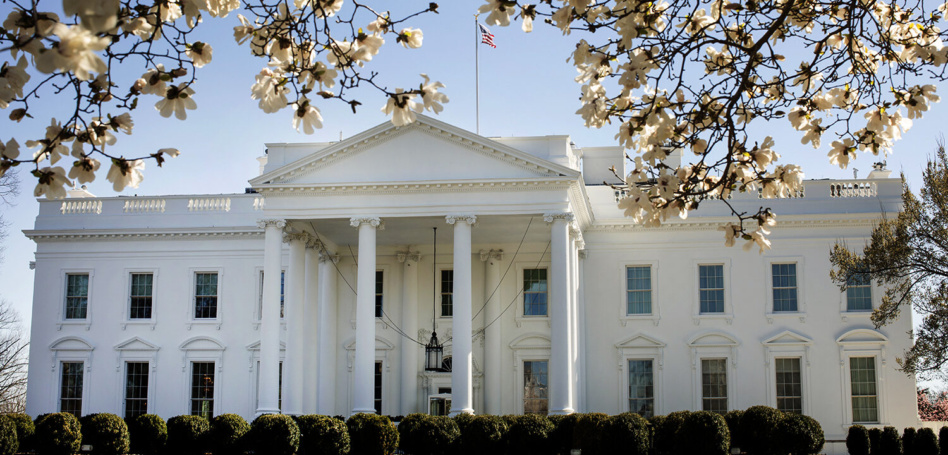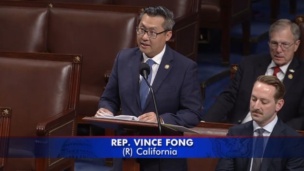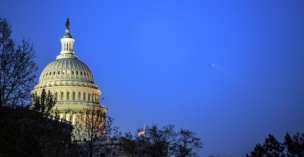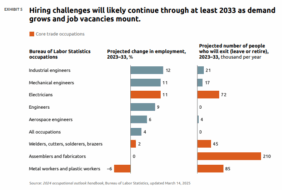The Republican presidential candidates duking it out to be the party’s nominee are also vying for the chance to lead the nation when American boots next set foot on the Moon.
Five Republican candidates will participate in tomorrow’s presidential debate in Miami. While space is unlikely to be high on a campaign’s list of priorities during a primary, here is what we know so far about the candidates’ space resumes.
Why it matters: The president is in charge of setting national space policy and proposing budgets that fund his or her top priorities in orbit, from national security to crewed exploration missions to scientific endeavors.
But you don’t have to look far for examples of how a president’s influence on space goes way beyond budget setting. JFK used his presidential power to rally the nation behind the dangerous race for the Moon. Former President Donald Trump beat the drum on the need for a Space Force. And the Biden administration’s focus on climate has seeped down to NASA, which recently opened a new climate change center at the agency’s DC headquarters.
Setting the stage: These are the Republicans expected to participate in tomorrow’s debate:
- Ron DeSantis: The Florida governor likely has the most space experience of anyone on stage. His state is home to NASA’s Kennedy Space Center, in addition to one of the military’s busiest launch ranges. As governor, he has courted new space companies (and the jobs that go with them) to put down roots in the Sunshine State and signed a bill in May limiting liability for commercial spaceflight companies.
- Chris Christie: The former New Jersey governor has become the self-proclaimed UFO expert of the presidential race. During the GOP debate in August, Christie promised to be transparent with the public if elected in response to a question about the existence of aliens. When NASA released a report on unidentified anomalous phenomena in September, Christie talked about it on Fox, saying, “I’m glad that I’ve become the Republican party expert on UFOs.”
- Vivek Ramaswamy: The former biotech exec seems to prioritize a strong national defense in space, at least on his social media. Ramaswamy listed improving space defense capabilities as one of his top foreign policy objectives. He also tweeted that “excellence and ‘equity’ are incompatible,” in response to a tweet about diversity hires at NASA.
- Nikki Haley: The former diplomat did not handle any space-specific negotiations during her time as ambassador to the United Nations. She did, however, tweet about space twice after resigning: in May 2020 celebrating the first crewed SpaceX Dragon launch and again in December 2020 touting Trump’s work on space.
- Sen. Tim Scott: The South Carolina Republican’s work on space has largely centered around recognizing achievements by Black astronauts, including Bernard Harris Jr. and Charles Bolden, and celebrating major space milestones, like the first crewed Dragon launch, when he tweeted, “When I was a kid, my mom always told me, ‘shoot for the moon, because even if you miss, you’ll still end up among the stars.’ I’ve never stopped looking to the stars for inspiration, and today we are all cheering for you.”
The elephant not in the room: Trump, who is opting to hold his own rally instead of attending Wednesday night’s debate, consistently made space a centerpiece of his administration, from reviving the defunct National Space Council to pushing for the establishment of the Space Force to formally establishing the return to the Moon under the Artemis program. It’s unclear if his focus on space would continue in a second administration, though space wins are often a way to highlight American leadership, which is a key talking point for Trump.
What’s next: Political buy-in is important for long-term federal priorities and as a signal to industry, but the commercial sector has reached a point where it’s going to survive with or without support from the next commander-in-chief.




